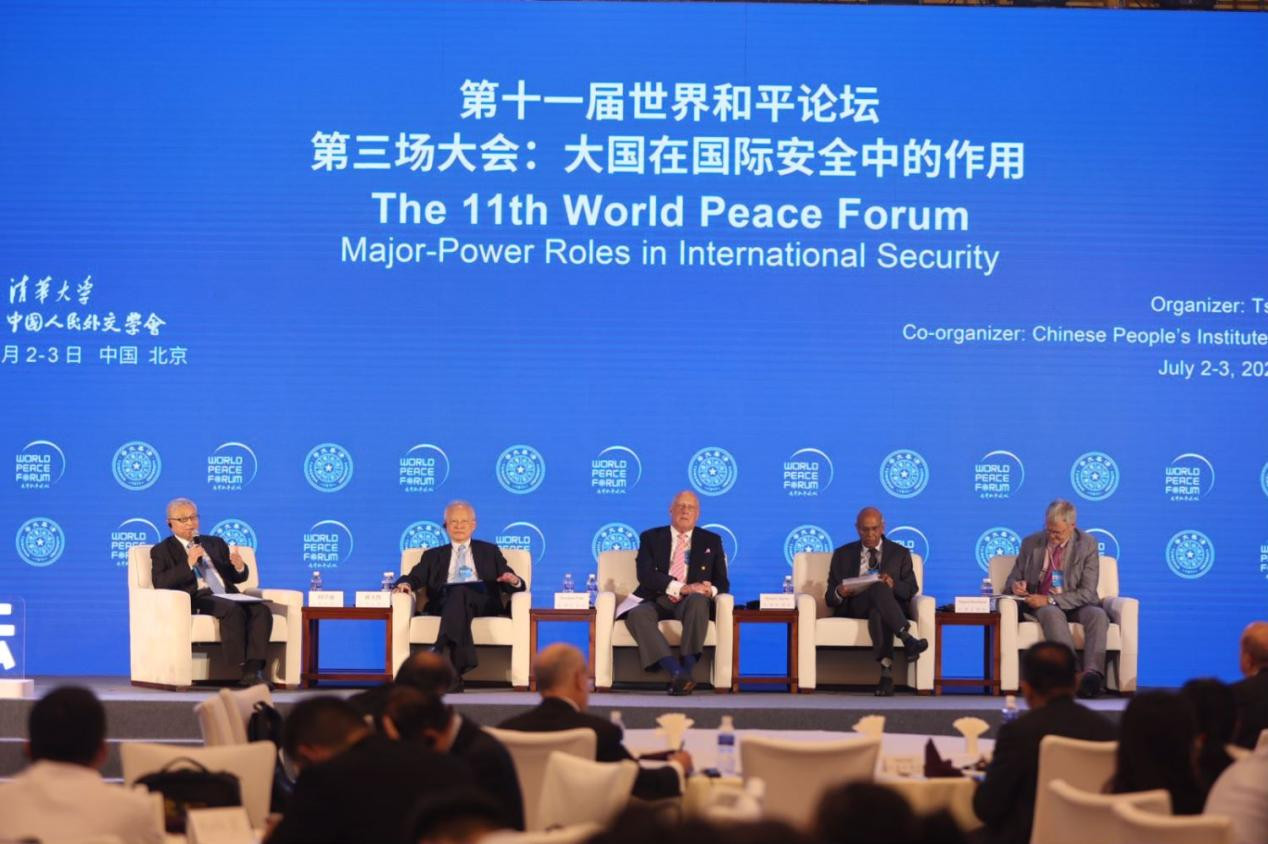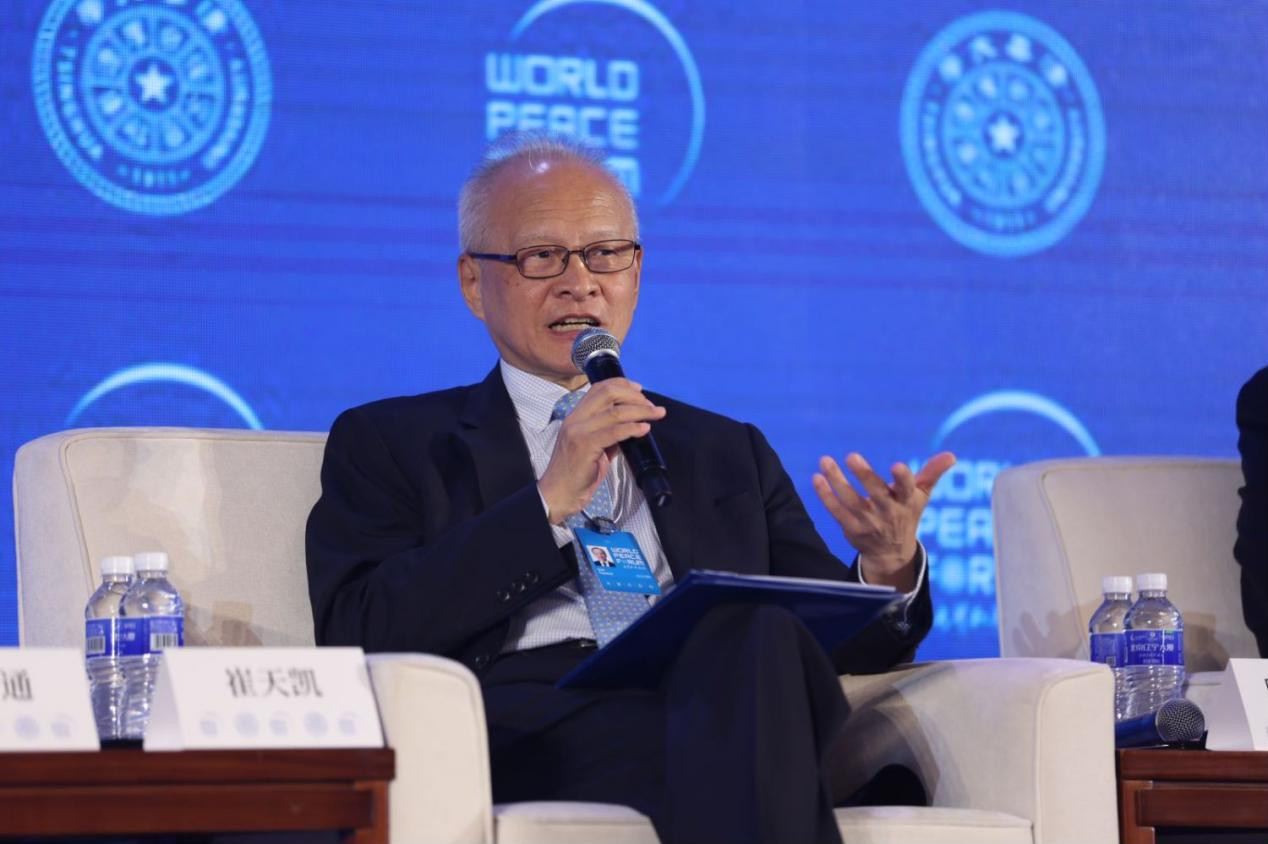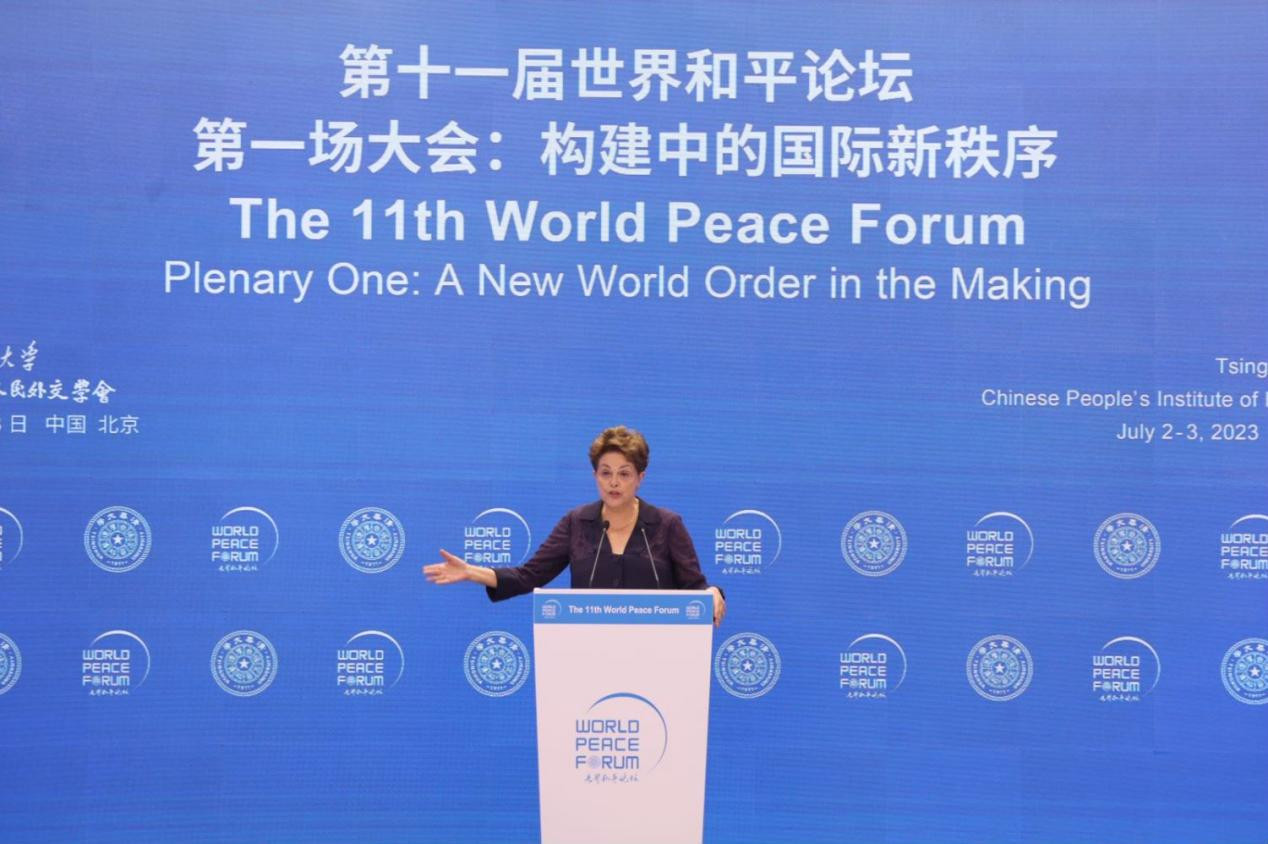Organized
by Tsinghua University and the Chinese People’s Institute of
Foreign Affairs, the 11th World Peace Forum was held from July 2 to 3
in Beijing.
Themed “Stabilizing an Unstable World Through Consensus and Cooperation,” this year’s forum has four plenaries and 19 panels.
 Plenary
of the 11th World Peace Forum
Plenary
of the 11th World Peace Forum
Topics include shaping a new framework for a stable China-U.S. relationship, security in the Asia-Pacific, advancing mutual trust between China and Europe, peace in the Middle East, and the Belt and Road cooperation were heatedly discussed.
More than 400 people, including former foreign political dignitaries, diplomatic envoys from various countries in China, experts, and scholars, attended the event.
GDToday reporters found that the topics about China-US relations and the concept of “decoupling” received a high degree of concern during the two-day forum.
Mutual respect is the foundation for easing tension between China and US
After US Secretary of State Antony Blinken’s visit to China, US Secretary of the Treasury Janet Yellen will visit China from July 6 to 9, according to an announcement from China’s Ministry of Finance on July 3.
Two senior US officials visit China one after another within half a month, which seems to release a positive signal to the world: the tension between China and the US is being eased.
“High-level communications between the two countries are indeed launching, ” said Cui Tiankai, former Ambassador of China to the US, on the plenary themed Major-Power Roles in International Security. “It is better for both sides to have a conversation face-to-face than cut off relations.”

Cui Tiankai, former Chinese Ambassador to the US
Wang Jisi, the founding president of the Institute of International and Strategic Studies at Peking University, claims that senior officials from both countries have met in recent months. For example, the recently appointed Ambassador of China to the US, Xiefeng, presented his credentials to Joe Biden, and the Chinese minister of commerce, Wang Wenfeng, met the US minister of commerce at APEC.
“Relations between the two sides have been eased since May this year, although the root of the tension has not been solved yet,” said Wang.
However, Blinken said in a recent interview that the US would continue to do something that China does not like, which sparked public concerns about the future development of the China-US relationship.
In response to Blinken’s speech, Cui emphasized that China pursues win-win cooperation, rather than doing things the US likes or doesn’t like.
“I think both China and the US should manage their relationship based on mutual respect and realize peaceful coexistence and win-win cooperation,” he added.
In an interview with GDToday, Douglas Paal, Distinguished Fellow of Endowment for International Peace of Carnegie, indicated that there are things that the US should work on with China that are mutually satisfactory, like complex relationships.
In his opinion, due to the approaching election, both Democrats and Republicans are shaping China as the biggest challenger and taking a tough stance on issues related to China, in an attempt to win the election.
He pointed out that both sides should re-establish existing communication channels to avoid potential conflicts via timely notification. Furthermore, he suggested that both countries can first start cooperation to promote people-to-people exchange, such as adding more flights and visa issues. After re-building mutual trust, both sides can launch more negotiations about trade tariffs or intellectual property in the future.
Cliff Kunpchan, Chairman of Eurasia Group, also suggested that both China and the US can formulate goals that can be achieved easily. “Both sides can find common interests through the cooperation,” he added.
“Decoupling” from China is a pseudo-proposition
Dilma Rousseff, President of the New Development Bank, as well as former President of Brazil, delivered a speech on the plenary themed A New World Order in the Making on July 2, saying, “ ‘decoupling’ and other concepts about regional risks are not only weakening global financial affairs, but are also being turned into a weapon to suppress the development of emerging economies.”

Dilma Vana Rousseff, President of the New Development Bank (NDB) and President of Brazil (2011-2016)
In order to suppress China’s development, some Western countries agitate for “decoupling” or “de-risking” from China or force other countries to cut off economic relations with China by issuing sanctions or restricting technical exchanges.
“The CHIPS and Science Act results in the deadlock of the global supply chain of semiconductors,” said Rousseff.
Rousseff emphasized that despite the weakening of globalization, there is still a need for mutual dependence among various regions of the world. She pointed out that cutting off connections among different regions is unrealistic, since international trade, global supply chain, and capital flow are increasing.
“The fact is that we now have a multilateral, independent, and integrated economy across the world,” said Acharya Alka, Chairperson of the Center for East Asian Studies of Jawaharlal Nehru University. “It’s impossible to move away from these integrated, highly integrated global production and commodity chains.”
“International trade affects regional security and prosperity,” said Graham Fletcher, Australian Ambassador to China. He indicated that their country would be poorer without open trade and more easily affected by regional or global conflicts.
The Ambassador also stated that Australia firmly supports globalization through signing international trade agreements, such as RECP, and trade deals with India and the UK.
Xie Tao, Dean of the School of English and International Studies of Beijing Foreign Studies University, stated that protectionism will grow in some time, due to the “decoupling”. However, the law of economic development illustrates that no country can realize self-sufficiency.
Wang Fan, Dean of China Foreign Affairs University, indicated that he felt optimistic about the “decoupling”, saying, “The CEO of Coca-Cola once said that China has a population of over 1.2 billion people, meaning we can sell more than 1.2 billion bottles of Cola there every day.”
“Therefore, I do not think the US can find another market that can completely replace China,” he stressed.
Steven Yuen and Lydia Liu reported from Beijing
Editors: Olivia Yan, James, Rofel Ding
Photos provided by GDToday
















